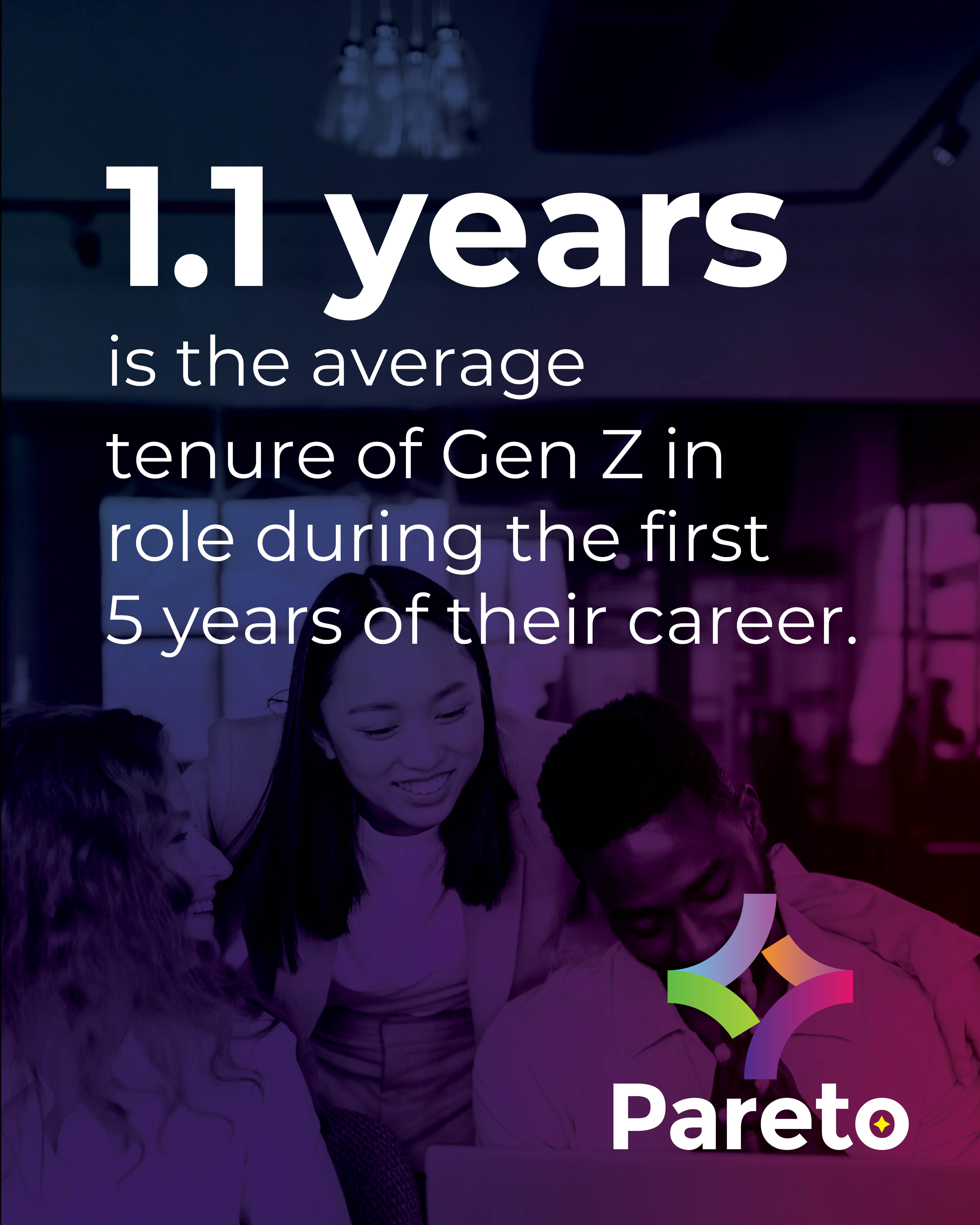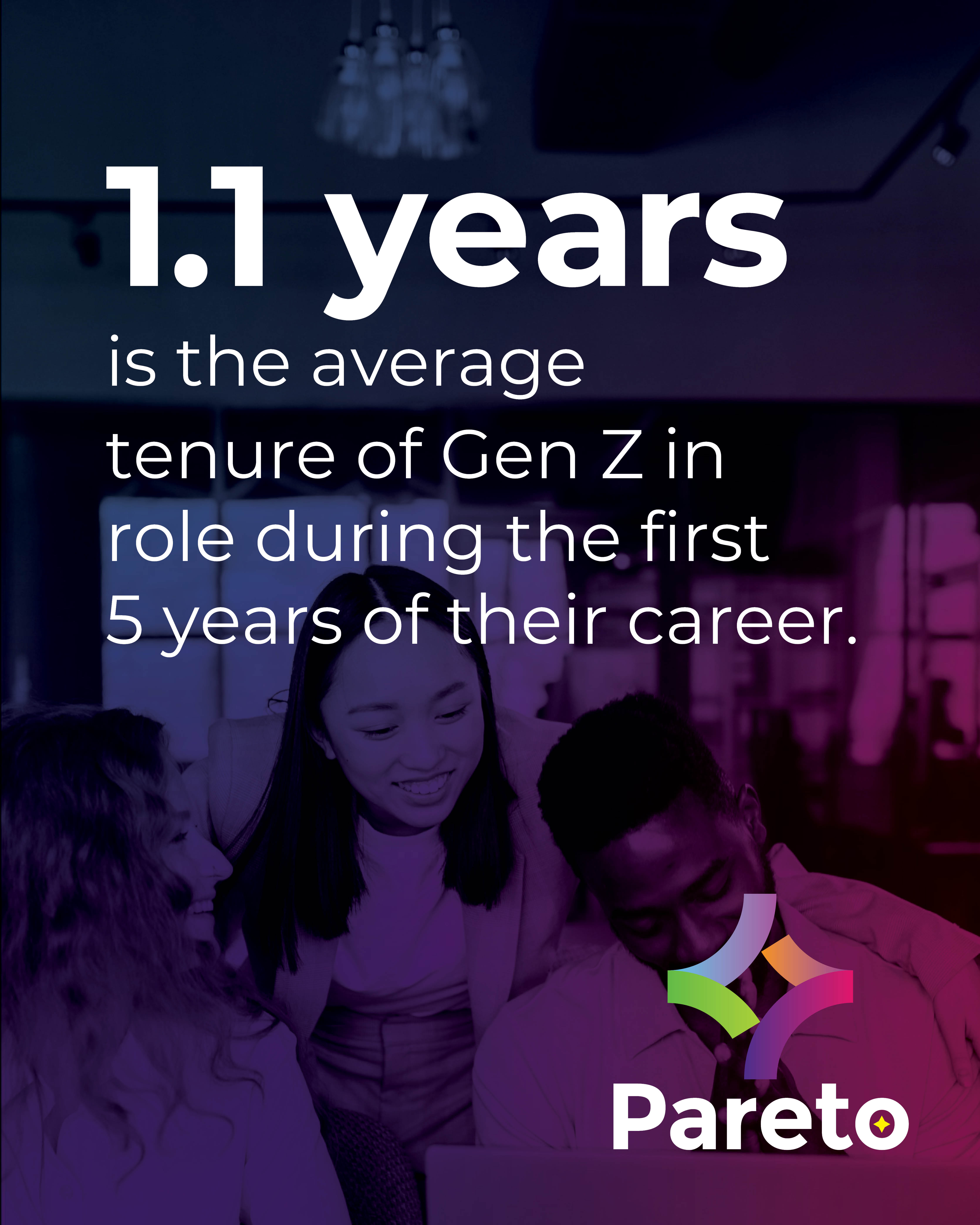
What matters to Gen Z talent in 2025
It’s time for employers to truly understand Gen Z, the ambitious, digitally fluent, and highly mobile talent reshaping the workforce.
Our parent company, Randstad’s latest research reveals a complex picture: a generation focused on long-term career plans yet characterised by short job tenures.
Their ambition is clear, but so are the shifting dynamics of the job market they face.
The key to unlocking Gen Z's full potential lies in understanding the core paradoxes.
The mobility mandate: why Gen Z moves
The defining feature of the UK’s Gen Z workforce is their high mobility. They enter the world of work at a time of tech disruption and economic uncertainty, where the average tenure in their first 5 years is just 1.1 years. Shorter than Millennials (1.8 years) or Gen X (2.8 years) at the same career stage.
This movement is a direct and pragmatic response to unmet ambition and a search for clear progression:
-
An astounding 52% of Gen Z workers in the UK agree or somewhat agree that they have been rejected for a job because they didn’t have the right skills. This experience, coupled with economic pressures, fuels a clear-eyed focus.
-
When looking for a job, 61% of Gen Z say they would take a role with misaligned personal values if the pay was excellent or a great deal of flexibility was offered.
-
For those Gen Z workers who left a role within the last year by their own decision, pay was the number one driver, cited by 40%.
Gen Z is the most mobile generation in the UK, with 44% of respondents reporting they are actively job hunting ("agree" or "somewhat agree" that they "regularly browse new roles online"). This overshadows the older cohorts with Millennials at 40%, Gen X at 28%, and Baby Boomers at 38%.
Insight: Gen Z treats the job market as a highly liquid marketplace. They are not held back by traditional long-term loyalty; they are driven by the pursuit of optimal benefits, career growth, and financial stability. For employers, this means retention strategies must be financially and beneficially competitive above all else, starting with addressing low pay as a key reason for early departure.
The digital paradox: ambition meets AI anxiety
Gen Z are the first true digital natives, and their comfort with technology, especially Artificial Intelligence (AI), is undeniable. However, this fluency exists in a complex relationship with a changing job market.
55% of Gen Z talent globally already use AI for problem-solving at work, the highest of all generations. In the UK, 51% of Gen Z agree they use AI to problem-solve at work.
While this generation is embracing these changes a paradox exists as globally, entry-level job postings (0-2 years' experience) have dropped by 29% since January 2024. This is particularly severe in Gen Z's preferred sectors, such as technology, where junior roles fell by 35%, and finance, with a 24% reduction.
This market disruption has led to anxiety. Globally, 46% of Gen Z worry about the long-term impact of AI on their careers, an increase from 40% in 2024.
In the UK, 48% of Gen Z workers agree they are worried about the impact of AI in their job.
Despite being keen to learn new skills quickly (83%) this generation is most likely to have been rejected for a job due to a lack of skills, and 41% state they do not have the confidence to find another job (the largest share among all generations surveyed.)
Insight: Employers must redefine entry-level roles to focus on non-automatable skills like critical thinking and creativity, offering clear, practical AI-enabled skilling opportunities to bridge the confidence and skills gap.
The need for presence: building the network
Gen Z holds a surprisingly strong conviction about the importance of the physical office, viewing it as essential for building the critical social capital needed to succeed.
44% of Gen Z in the UK agree or somewhat agree that it’s important to be physically present at work to build strong team relationships. This places them on par with Millennial (44%) and Gen X (44%) workers.
While 57% of Gen Z find the concept of a traditional 9-to-5 role boring, 73% perform their job effectively even while exploring other opportunities. This suggests their focus is on output and mobility.
Insight: Gen Z workers recognise the office as a crucial networking and visibility hub. They value the efficiency of presence for progression.
The support system: feeling backed by management
Perhaps due to their visible drive and willingness to engage, Gen Z reports feeling the most supported by their managers and colleagues compared to any other generation in the UK.
67% of Gen Z agree or somewhat agree that they are loyal to their current employer and believe they care about their future.
Gen Z is also the most proactive when it comes to self-directed learning, with 35% saying they often take on skilling opportunities in their free time.
However, poor workplace culture remains a significant detractor, cited as a key reason for leaving by 14% of Gen Z who left a job in under a year. This is second only to low pay.
Insight: Management and colleagues in the UK appear to be successfully cultivating a sense of support among the youngest workers. Employers must maintain this high level of developmental engagement to potentially counter their high willingness to leave for better benefits.

